Susan Bernofsky's Blog, page 33
May 18, 2016
Translate in London This July
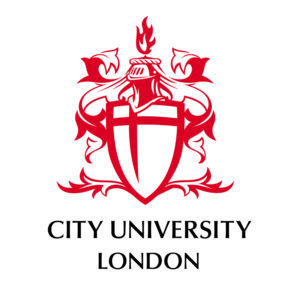 The program Translate in the City at City University London has been around for three years now. It’s always held during the summer and includes intensive workshops as well as supporting lectures and activities. This year’s program will be taking place July 11-15, 2016. You can sign up to participate in languages including Polish, Portuguese, Chinese, Russian, Japanese, French, Italian, Spanish, Germany, Arabic, and Catalan, taught by some of the top translators in the U.K. Here’s the official description from the Translate in the City website:
The program Translate in the City at City University London has been around for three years now. It’s always held during the summer and includes intensive workshops as well as supporting lectures and activities. This year’s program will be taking place July 11-15, 2016. You can sign up to participate in languages including Polish, Portuguese, Chinese, Russian, Japanese, French, Italian, Spanish, Germany, Arabic, and Catalan, taught by some of the top translators in the U.K. Here’s the official description from the Translate in the City website:
The course will be taught in an all-day workshop environment using a variety of texts including non-fiction (essays, journalism, academic) and fiction (poetry, fantasy, children’s literature and crime writing etc.) There will be plenty of opportunities for networking with publishers, agents, university staff and one another. Daily evening events will include a French Translation Slam, a Keynote Lecture by literary translator and editor (of the quarterly Modern Poetry in Translation) Sasha Dugdale, on Poetry, Birdsong and Translation and a Publishers’ Panel with Nick Sheerin (Profile Books), Emily Boyce (Gallic Books), Mark Richards (John Murray) and Sophie Lewis (And Other Stories). The Language Officer of the European Commission Representation in the UK will also give a seminar on the opportunities for translators in the EU.
The cost of participation (not including travel and housing) is £490, and a limited number of £100 scholarships are available; applications for aid must be received by May 31, 2016. See the website for details and application instructions.
The post Translate in London This July appeared first on TRANSLATIONiSTA.
2016 Oxford-Weidenfeld Translation Prize Shortlist Announced
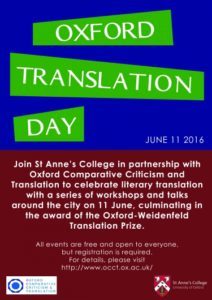 The Oxford-Weidenfeld Prize, an annual award given to a book-length literary translation into English from any living European language, aims to honor the craft of translation, and to recognize its cultural importance. This year’s shortlist has just been announced:
The Oxford-Weidenfeld Prize, an annual award given to a book-length literary translation into English from any living European language, aims to honor the craft of translation, and to recognize its cultural importance. This year’s shortlist has just been announced:
Paul Vincent and John Irons for 100 Dutch-Language Poems (Holland Park Press)
John Cullen for Kamel Daoud’s The Meursault Investigation (Oneworld)
Stephen Pearl for Ivan Goncharov’s The Same Old Story (Alma Classics)
Don Bartlett for Karl Ove Knausgaard’s Dancing in the Dark: My Struggle (Harvill Secker)
Shaun Whiteside for Charles Lewinsky’s Melnitz (Atlantic Books)
Lola M. Rogers for Sofi Oksanen’s When the Doves Disappeared (Atlantic Books)
Philip Roughton for Jón Kalman Stefánsson’s The Heart of Man (MacLehose Press)
Lisa C. Hayden for Eugene Vodolazkin’s Laurus (Oneworld)
This year’s judges are Valentina Gosetti, Jonathan Katz, Graham Nelson, and Patrick McGuinness (Chair). The winner of this year’s £2,000 prize will be announced as part of Oxford Translation Day a day of workshops and talks on to be held at St. Anne’s College and other venues in Oxford on June 11, 2016. All of these events are free and open to the public (preregistration requested). For a complete program, and to register, click here.
Congratulations and best of luck to all the shortlisted translators!
The post 2016 Oxford-Weidenfeld Translation Prize Shortlist Announced appeared first on TRANSLATIONiSTA.
May 17, 2016
Submit Now for the 2017 Cliff Becker Book Prize in Translation
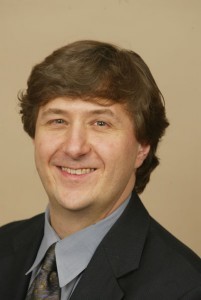 This is the fifth year of the annual Cliff Becker Book Prize in Translation, created to honor Cliff Becker, who was the much-beloved director of literary programs at the National Endowment for the Arts until his untimely death in 2005. To compete for the prize, translators are invited to submit bilingual manuscripts of translated poetry postmarked by July 31, 2016. The prize comes with a $1000 purse, and the winning manuscript will be published by White Pine Press. There’s a $25 fee to submit. Submission details and more information here.
This is the fifth year of the annual Cliff Becker Book Prize in Translation, created to honor Cliff Becker, who was the much-beloved director of literary programs at the National Endowment for the Arts until his untimely death in 2005. To compete for the prize, translators are invited to submit bilingual manuscripts of translated poetry postmarked by July 31, 2016. The prize comes with a $1000 purse, and the winning manuscript will be published by White Pine Press. There’s a $25 fee to submit. Submission details and more information here.
The post Submit Now for the 2017 Cliff Becker Book Prize in Translation appeared first on TRANSLATIONiSTA.
May 16, 2016
2016 Man Booker International Prize Announced
I know you’ve been waiting impatiently all spring for the announcement of the Man Booker International Prize (and I hope you’ve been enjoying the luscious shortlist meanwhile). It’s a big year for this prize, since it’s the first year that it’s being presented in this form. In the past, the Man Booker Prize was awarded every 2 years for an author’s life’s work, and was open to authors writing in any language, including English. Starting in 2016, the Booker Prize Foundation will award two prizes each year, the Man Booker Prize for a work in English, and the Man Booker International Prize, which will be awarded every year and will honor a single book published in English translation in the U.K. during the previous year; this new prize has been merged with the Independent Foreign Fiction Prize, which through 2015 honored a single work in translation. The hefty Man Booker International purse of £50,000 is split equally between author and translator.
And your wait is now over. At a clearly quite posh ceremony at the Victoria and Albert Museum in London this evening (remember they’re 5 hours ahead of NYC), the announcement was made that the prize has gone to translator Deborah Smith and author Han Kang for The Vegetarian. Deborah Smith is, among other things,  the founder of Tilted Axis Press, a publishing house specializing in literature by women writers from Asian countries, working to counteract the much-bewailed dearth of international literature by women available in English translation, so I’m especially glad to see her honored for her work. Big congratulations!
the founder of Tilted Axis Press, a publishing house specializing in literature by women writers from Asian countries, working to counteract the much-bewailed dearth of international literature by women available in English translation, so I’m especially glad to see her honored for her work. Big congratulations!
The post 2016 Man Booker International Prize Announced appeared first on TRANSLATIONiSTA.
May 11, 2016
Translation on Tap in NYC, May 16 – 31, 2016
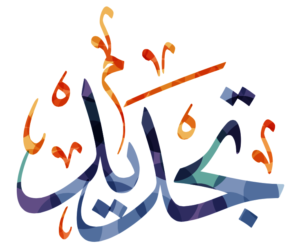 Finally spring has arrived in New York, and a lovely crop of translation events are blossoming. Here’s what’s coming up:
Finally spring has arrived in New York, and a lovely crop of translation events are blossoming. Here’s what’s coming up:
Tuesday, May 17:
The Sound of Translation: Panel discussion featuring translators Tess Lewis and Ross Ufberg in conversation with Michael Orthofer and Rüdiger Wischenbart, moderated by translator Liesl Schillinger. This event marks the opening of submissions for the 2016-2017 Austrian Cultural Forum New York Translation Prize and presents the 2016 Diversity Report on international publishing. More information here. Austrian Cultural Forum, 11 E. 52nd St., 7:30 p.m.
Also Tuesday, May 17:
The Bridge Series: Bookselling, presented in partnership with the PEN Translation Committee, a panel on selling and the salability of translated books featuring booksellers and publicists Miriam Bridenne, Kate Garber, and Becky Kraemer, moderated by Hal Hlavinka. More information here. The Center for Fiction, 17 E. 47th St., 7:00 p.m.
Thursday, May 19:
The Common in the City: A Celebration of Contemporary Arabic Fiction: Translators Omar Berrada and Ülkü Tekten will be among the readers and presenters at this evening of h’ors d’oeuvres and literature that simultaneously will serve as a fundraiser for The Common. Advance tix $25, more information here. Arthur L. Carter Journalism Institute, New York University, 20 Cooper Square, 6:00 p.m.
The post Translation on Tap in NYC, May 16 – 31, 2016 appeared first on TRANSLATIONiSTA.
May 5, 2016
2016 Best Translated Book Award Winners Announced
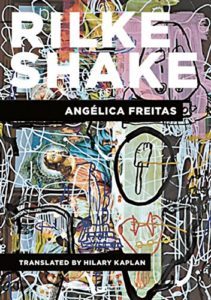
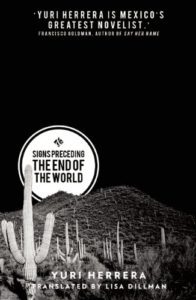 Last night at an event at The Folly in NYC, the 2016 winners of the Best Translated Book Award were announced. The prizes ($5000 for each translator and writer) have gone to Lisa Dillman for her translation from the Spanish of the novel Signs Preceding the End of the World by Yuri Herrera, and to Hilary Kaplan, for her translation from the Portuguese of Angelica Freitas’s poetry collection e Shake. Congratulations to the 2016 BTBA winners, and to the finalists for the awards. For more information on the winning books and comments from the judges, see the official announcement on The Millions.
Last night at an event at The Folly in NYC, the 2016 winners of the Best Translated Book Award were announced. The prizes ($5000 for each translator and writer) have gone to Lisa Dillman for her translation from the Spanish of the novel Signs Preceding the End of the World by Yuri Herrera, and to Hilary Kaplan, for her translation from the Portuguese of Angelica Freitas’s poetry collection e Shake. Congratulations to the 2016 BTBA winners, and to the finalists for the awards. For more information on the winning books and comments from the judges, see the official announcement on The Millions.
The post 2016 Best Translated Book Award Winners Announced appeared first on TRANSLATIONiSTA.
May 3, 2016
Why Translating Black Writers Matters
The world of literary translation is and has traditionally been very white – at least in the United States. Most of what gets translated here is by white authors, and the majority of published translators are white as well, except in the case of heritage speakers translating literature from countries with non-white majorities. There are exceptions, of course and thank goodness, but overall the diversity of the U.S. translation community in no way reflects that of the literary and general communities in which it is situated. And that’s a problem, because it inevitably means an impoverishment of perspective. It also points to injustice: inequalities of education and opportunity that play out especially in fields of cultural production that are seen as “luxury” extras in the context of our increasingly underfunded schools.
At this moment in our cultural history when the Black Lives Matter movement has forced back into the (white/not only white) national consciousness questions about the all-too-often deadly role played by white supremacy in the deep structure of our society, it’s not surprising that the writing community has responded with its own passionate investigations into the interlinkages between race, experience, and literary art. The translation world has been slower to stir, but it’s been stirring. I’ve seen pockets of really powerful activity springing up, say, around Don Mee Choi’s projects with Wave and Action Books (backed up by Joyelle McSweeney and Johannes Göransson), and the Antena project spearheaded by Jen Hofer and John Pluecker. But while these projects are vibrant and important, and the translators involved in these and related ventures often of color, the color is all too rarely black, which suggests among other things that the historically white translation world and its gatekeepers have not yet done enough to foster and support African American translators, and that there’s been generally too little attention paid to the role(s) race plays in translation. We need more, and the good news is that more is on the way, in fact it’s already here. As a board member of the American Literary Translators Association, I can attest to a broad institutional desire to encourage the growth of Translationland as a more diverse (in ways including but not limited to race, ethnicity, sexuality, and gender) sphere of endeavor and inquiry. And having just peeked at the panel submissions for this year’s ALTA conference (to be held in Oakland, CA, Oct. 6-9 – not yet too late to apply for travel funding – please come!), I am heartened to be able to report a significant number of really interesting proposals that address various aspects of translation through questions of race. The official program will come out soon, and then you’ll see what I mean. (Oh, and Don Mee Choi is giving the keynote!)
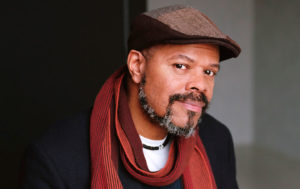
John Keene, photo ©Nina Subin
But really the reason I’m thinking about this today is that writer and translator John Keene has just written an essay, “Translating Poetry, Translating Blackness,” that is easily the single most comprehensive contribution I’ve seen to date on the question of what gets lost when we translate only work by white poets (and, by extension, writers of all genres). Keene beautifully describes what we stand to gain – in knowledge, understanding, and joy – by being able to discover, through translation, the work of non-Anglophone black diasporic authors. Translating more broadly, he argues, will make us smarter about questions of history and race in our own society as well as internationally, by letting us
have a clearer sense of the connections and commonalities, as well as the differences across the African Diaspora, and better understand an array of regional, national, and hemispheric issues. We would not be surprised, as many were after the U.S. invasion of Iraq in 2003, that there were black people in Basra and other parts of Iraq; that Pakistan has its own contemporary self-styled “Langston Hughes,” Meem Danish, and that there are long established black communities throughout South Asia; that Aboriginal poets and writers in the Pacific Rim and Oceania have articulated very similar critiques, sometimes deeply influenced by African-American and African Diasporic cultural production, of their societies; that Sri Lankan Tamil writers like Antonythasan Jesuthasan, an actor and novelist who writes under the pen name Sobashakti, meaning “Black Power,” invoke liberation-centered critiques in conversation with similar ones around the black world; or that the social and cultural experiences—including the challenges of racism and white supremacy—both French Minister of Justice Christine Taubira and Amédy Coulibaly, one of the terrorists in the Charlie Hebdo attacks, have faced in their lives mirror what we might find among black peoples across the globe.
Keene has done the math on the works currently being translated from the world’s most commonly-translated languages – figures that are not always what you might expect. You might be surprised, for instance, to see how proportionally little is being translated from Chinese. His argument is interspersed with beautifully translated snippets of poems in several languages that offer persuasive glimpses into the worlds he is proposing we take note of and make accessible to English-language readers. His call to publish works by Black authors from around the globe is nothing short of a manifesto that asks all of us – as members of the translation community – to examine the choices we make and support as we decide which works to translate into English.
When I started this blog post, I was planning to link at this point to Keene’s essay so you could read it yourselves. But it turns out that it was only made available for a limited time on the Poetry Foundation’s blog Harriet for copyright reasons. (I assume it’ll be out elsewhere soon, at which point I’ll update this post to link to it.) The essay appeared on Harriet as part of an extraordinary series on writing, translation, migration, whiteness, blackness, and darkness ingeniously curated by Daniel Borzutzky. The other installments of this conversation, by Don Mee Choi, Cecilia Vicuña, Jen Hofer, and Lucas de Lima, are all important contributions in their own right and very much worthy of your attention. Lucas de Lima’s essay in particular, “Poetry Betrays Whiteness,” dovetails powerfully with Keene’s as he goes beyond the question of what to translate to speak of how. “How can I, as a scholar and translator, support the legacies of writers like [Miriam] Alves and [Adão] Ventura?” de Lima writes, speaking of two Afro-Brazilian poets being translated by someone who counts as “of color” in the U.S. and as white in Brazil. “How do I not only fly in solidarity with them but also honor their visions of flight? […] Respectability politics, tokenization, and ‘diversity’ do not redress this history [I incarnate]—they are the divide-and-conquer tactics by which race is deftly managed, our movements co-opted and undermined. When only a chosen few gain from the work of many, solidarity crumbles. When I am rewarded for my anti-racism, it usually means I’m being used.”
These are complex issues and crucial, long-overdue conversations, and I look forward to seeing these topics further discussed within the unitedstatesian translation community – including at this year’s ALTA conference, where I expect questions of translation and race to play a pivotal role. The deadline for travel fellowship applications for emerging translators is May 9, so act quickly if you’d like to come and need help getting there.
And one more thing: who’s going to start the new publishing house or book series or journal or website specifically devoted to promoting translations into English of the multilingual African diaspora? If you are already involved in (or know of) a related project, please post a link in the comments below.
The post Why Translating Black Writers Matters appeared first on TRANSLATIONiSTA.
Translating Black Writers Matters
The world of literary translation is and has traditionally been very white – at least in the United States. Most of what gets translated here is by white authors, and the majority of published translators are white as well, except in the case of heritage speakers translating literature from countries with non-white majorities. There are exceptions, of course and thank goodness, but overall the diversity of the U.S. translation community in no way reflects that of the literary and general communities in which it is situated. And that’s a problem, because it inevitably means an impoverishment of perspective. It also points to injustice: inequalities of education and opportunity that play out especially in fields of cultural production that are seen as “luxury” extras in the context of our increasingly underfunded schools.
At this moment in our cultural history when the Black Lives Matter movement has forced back into the (white/not only white) national consciousness questions about the all-too-often deadly role played by white supremacy in the deep structure of our society, it’s not surprising that the writing community has responded with its own passionate investigations into the interlinkages between race, experience, and literary art. The translation world has been slower to stir, but it’s been stirring. I’ve seen pockets of really powerful activity springing up, say, around Don Mee Choi’s projects with Wave and Action Books (backed up by Joyelle McSweeney and Johannes Göransson), and the Antena project spearheaded by Jen Hofer and John Pluecker. But while these projects are vibrant and important, and the translators involved in these and related ventures often of color, the color is all too rarely black, which suggests among other things that the historically white translation world and its gatekeepers have not yet done enough to support African American translators, and that there’s been generally too little attention paid to the role(s) race plays in translation. We need more, and the good news is that more is on the way, in fact it’s already here. As a board member of the American Literary Translators Association, I can attest to an institution-wide desire to encourage the growth of Translationland as a more diverse (in ways including but not limited to race, ethnicity, sexuality, and gender) sphere of endeavor and inquiry. And having just peeked at the panel submissions for this year’s ALTA conference (to be held in Oakland, CA, Oct. 6-9 – not yet too late to apply for travel funding – please come!), I am heartened to be able to report a significant number of really interesting proposals that address various aspects of translation through questions of race. The official program will come out soon, and then you’ll see what I mean. (Oh, and Don Mee Choi is giving the keynote!)

John Keene, photo ©Nina Subin
But really the reason I’m writing this today is that writer and translator John Keene has just written an essay, “Translating Poetry, Translating Blackness,” that is easily the single most important and comprehensive contribution I’ve seen to date on the question of what gets lost when we translate only work by white poets (and, by extension, writers of all genres). Keene beautifully describes what we stand to gain – in knowledge, understanding, and joy – by being able to discover, through translation, the work of non-Anglophone black diasporic authors. Translating more broadly, he argues, will make us smarter about questions of history and race in our own society as well as internationally, by letting us
have a clearer sense of the connections and commonalities, as well as the differences across the African Diaspora, and better understand an array of regional, national, and hemispheric issues. We would not be surprised, as many were after the U.S. invasion of Iraq in 2003, that there were black people in Basra and other parts of Iraq; that Pakistan has its own contemporary self-styled “Langston Hughes,” Meem Danish, and that there are long established black communities throughout South Asia; that Aboriginal poets and writers in the Pacific Rim and Oceania have articulated very similar critiques, sometimes deeply influenced by African-American and African Diasporic cultural production, of their societies; that Sri Lankan Tamil writers like Antonythasan Jesuthasan, an actor and novelist who writes under the pen name Sobashakti, meaning “Black Power,” invoke liberation-centered critiques in conversation with similar ones around the black world; or that the social and cultural experiences—including the challenges of racism and white supremacy—both French Minister of Justice Christine Taubira and Amédy Coulibaly, one of the terrorists in the Charlie Hebdo attacks, have faced in their lives mirror what we might find among black peoples across the globe.
Keene has done the math on the works currently being translated from the world’s most commonly-translated languages – figures that are not always what you might expect. You might be surprised, for instance, to see how proportionally little is being translated from Chinese. His argument is interspersed with beautifully translated snippets of poems in several languages; taken together, they offer persuasive glimpses into the worlds he is proposing we make the acquaintance of. His call to publish works by Black authors from around the globe is nothing short of a manifesto that asks all of us – as members of the translation community – to examine the choices we make and support as we decide which works to translate into English.
When I set out to write this blog post, I was planning to link to Keene’s essay so you could read it yourselves. But it turns out that it was only going to be made available for a short time on the Poetry Foundation’s blog Harriet, as part of an extraordinary series of essays on writing, translation, migration, whiteness, blackness, and darkness ingeniously curated by Daniel Borzutzky. The other installments of this conversation, by Don Mee Choi, Cecilia Vicuña, Jen Hofer, and Lucas de Lima, are all important contributions in their own right and very much worthy of your attention. Lucas de Lima’s essay in particular, “Poetry Betrays Whiteness,” dovetails challengingly and powerfully with Keene’s as he goes beyond the question of what to translate to speak of how. “How can I, as a scholar and translator, support the legacies of writers like [Miriam] Alves and [Adão] Ventura?” de Lima writes, speaking of two Afro-Brazilian poets being translated by a poet who counts as “of color” in the U.S. and as white in Brazil. “How do I not only fly in solidarity with them but also honor their visions of flight? […] Respectability politics, tokenization, and ‘diversity’ do not redress this history [I incarnate]—they are the divide-and-conquer tactics by which race is deftly managed, our movements co-opted and undermined. When only a chosen few gain from the work of many, solidarity crumbles. When I am rewarded for my anti-racism, it usually means I’m being used.”
These are complex issues and crucial, long-overdue conversations, and I look forward to seeing these topics further discussed within the unitedstatesian translation community – including at the ALTA conference. The deadline for travel fellowship applications for emerging translators is May 9, so act quickly if you’d like to come and need help getting there.
And one more thing: who’s going to start the new publishing house or book series or journal or website specifically devoted to promoting the work of the multilingual African diaspora? If you are already involved in (or know of) a related project, please post a link in the comments below.
The post Translating Black Writers Matters appeared first on TRANSLATIONiSTA.
May 1, 2016
Translation on Tap in NYC, May 1 – 15, 2016
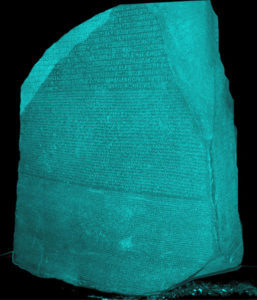 So far I’ve just got one thing on the books for early May, but it’s a doozy: a two-day conference at the CUNY Graduate Center entitled Translation Theory Today: An Interdisciplinary Conference on Critical Theory. All events will be held at the CUNY Graduate Center, 365 Fifth Ave. Registration is not required except for the second keynote on Friday (more info here). Update: Aha, this isn’t the only event this month, it’ll be preceded by the BTBA Awards on May 4. So here are the listings, in chronological order:
So far I’ve just got one thing on the books for early May, but it’s a doozy: a two-day conference at the CUNY Graduate Center entitled Translation Theory Today: An Interdisciplinary Conference on Critical Theory. All events will be held at the CUNY Graduate Center, 365 Fifth Ave. Registration is not required except for the second keynote on Friday (more info here). Update: Aha, this isn’t the only event this month, it’ll be preceded by the BTBA Awards on May 4. So here are the listings, in chronological order:
Thursday, May 4:
Awards ceremony for the Best Translated Book Award in poetry and fiction, winners to be announced promptly (that’s what they tell me) at 7:00 p.m. More information here. The Folly, 92 W. Houston St., 6:30 p.m.
Thursday, May 5:
Translation Theory Today: An Interdisciplinary Conference on Critical Theory
10:00-11:20 AM First Panel Session
Graphic Transformation (Room 8301)
Chair: Professor Siona Wilson
“Double Double, Play and Novel: Mairghread Scott’s Comic Book Adaptation of William Shakespeare’s Macbeth”
Melissa Vipperman-Cohen (PhD Candidate, University of California, San Diego)
“Such with Voice Bear Forth: Translating Vergil’s Aeneid as a Graphic Novel”
Dr. R. Drew Griffith (Professor, Queen’s University, Kingston)
“Graphic Onomatopoetics”
Edward Gauvin (Independent Translator)
“The Visual Aspect in the Translation of the Swedish Cultural Code into Polish”
Dr. Sylvia Liseling-Nilsson (Assistant Professor, University of Leuven)
Cinematic Translation (Room 8304)
Chair:Professor Paul Julian Smith
“Born Legible: Navigating Cultural Translation through Latin American Queer Cinema”
Gabriella Martin (PhD Student, Washington University)
“Resistance or Subservience? The Fictional Representation of Translation and Globalization”
Dr. Klaus Kaindl (Associate Professor, University of Vienna)
“How can we put into words that which the image tell us? A filmosophic answer through the lens of Nietzsche and Fritz Lang’s Metropolis”
Paul Kurek (PhD Student, University of California, Los Angeles)
“Translation and Yiddish? Yiddish and Media?? Or What Does it Take to Read Joel and Ethan Coen’s Film, A Serious Man?”
Dr. Dror Abend-David (Lecturer, University of Florida)
Music and Movement (Room 8402)
Chair: Professor Anne Stone
“Refiguring Translation as Material Practice”
Dr. Margaret Schwartz (Associate Professor, Fordham University)
“Performing Translations between Literary Narrative and Ballet Choreography in La Cafetière by Théophile Gautier”
Brittany C. Prescott (PhD Student, Brown University)
“Translation as Impersonation: Liszt’s Piano Transcriptions of Beethoven’s Symphonies”
Dr. Tekla Babyak (Independent Scholar)
“Brodsky and Walcott: Music, Meaning, and ‘Twists of Language’ in Translation”
Dalia Bolotnikov (PhD Candidate, University of California, Santa Barbara)
11:30 AM-12:50 PM Second Panel Session
In Her Own Words (Room 8301)
Chair: Professor Alyson Cole
“Commenting and Translating the ‘Letter’ of the Text: How Women Have Rendered Biblical Texts”
Dr. Luise von Flotow (Professor, University of Ottawa)
“The Translating Woman: The Question of Agency in Contemporary Religious Discourse”
Sindhu Jose (PhD Candidate, English and Foreign Languages University)
“The Translator’s Visibility, Neologism, and Gender in Literary Translation”
Sima Sharifi (PhD Candidate, University of Ottawa)
Absence, Authority, & Autotranslation in Russian Literature (Room 8304)
Chair: Professor Elizabeth Beaujour
“At a loss for words: Paul Celan’s translation of a poem by Osip Mandelstam”
Irina Kogan (PhD Student, Yale University)
“Framing Joyce: Ulysses and Socialist Realism”
Zachary King (PhD Candidate, University of Chicago)
“What does a translation say? Agency in an early English-language Anna Karenina”
Geordie Kenyon Sinclair (PhD Candidate, Harvard University)
“The Curious Case of Vladimir Nabokov: cross-cultural adaptation through the prism of literary creation and autotranslation”
Alexandra Cheveleva Dergacheva (PhD Student, Autonomous University of Madrid)
Pop Media in the 21st Century (Room 8402)
Chair: Professor Giancarlo Lombardi
“The Demand for ‘Love’: Translating the Language of Romance in Reality Television”
Dr. Lara Merlin (Assistant Professor, Vaughn College)
“When the Self Is the Other: Algonquin Rap Music in Québec”
Antoinette Williams-Tutt (PhD Candidate, The Graduate Center, CUNY)
“Re-sounding the Visual Archive of Konkow Maidu Artist Frank Day: A Translation through Metaphor in Four Parts”
Ryan Rhadigan (PhD Student, University of California Berkeley)
“Translating or Traducing Images: The Case of Charlie Hebdo”
Saiful Saleem (PhD Student, The Graduate Center, CUNY)
2:00-3:20 PM Third Panel Session
Revolution and Critique in Asian Literature (Room 8301)
Chair: Professor Ying Zhu
“The Theory and Practice of the Translated Academic Novel in China”
Dr. Joseph Poon (Associate Professor, University of Hong Kong)
“The Melancholy of Language and the Logic of Translation”
Dr. Yoon Jeong Oh (PhD Recipient, Cornell University)
“Translation of Revolution: Lu Xun’s Hard Translation Revisited”
Eunyeong Kim (PhD Student, Stanford University)
“On Translator’s Narrative Interference in English Version of Lu Xun’s Novels by William Lyell under the Translator’s Voice”
Shen Li (Faculty Member, Hunan University)
Echoes of the Classics in the Postcolonial World (Room 8304)
Chair: Professor Lía Schwartz
“As purificações ou O sinal de talião: Translating Collective Memory Writing as an Archaeology”
Chloe Hill (PhD Student, Brown University)
“Translating Classical Presences in Afro-Brazilian Literature”
Dr. Andrea Kouklanakis (Professor, Bard High School and Early College)
“Emancipation by translation? Al-Bustānī’s Iliad and cultural imperialism in the Middle East”
Evelyn Richardson (PhD Student, University of Chicago)
“Arabic Philology and British Romantic Desire: Translation, Adaptation and Imitation in William Jones’s Moallakat (1783)”
Suleiman R Hodali (PhD Student, University of California, Los Angeles)
Translating Queerness within Contemporary Global Contexts (Room 8402)
Chair: Professor Michele Wallace
“Translating Otherness: The Queer Women of Marvel’s X-Men”
Melinda Borchers (PhD Student, University of Tennessee, Knoxville)
“Translating the Futurity of Queerness: The Black Queer Body in the Short Fiction of Lindiwe Nkutha and Makhosazana Xaba”
Heather Williams (PhD Candidate, University of Tennessee, Knoxville)
“The Translation of Queerness Across the Black Diaspora”
Jewel Williams (PhD Student, University of Tennessee, Knoxville
3:30-4:50 PM Fourth Panel Session
The Sacred and the Profane (Room 8301)
Chair: Professor Monica Calabritto
“Translation, Comparative Religion, and Comparative Concepts of Truth and Power”
Dr. Sinkwan Cheng (Lecturer, University College, London)
“The Proverb as a Cultural Translation Tool: Some Examples from the Ancient World”
Zachary Domach (PhD Student, Columbia University)
“And my Bowels were Moved for Him: Some Notes Toward a New Translation of the Song of Songs”
Kerry Carnahan (PhD Student, University of Connecticut)
“Possibilities of Difference: Bible Translation, Literary Deconstruction, and Benjamin’s ‘Task’”
Dr. Sage Anderson (PhD Recipient, New York University)
Reexamining the Task of the Translator (Room 8304)
Chair: Professor John Brenkman
“Mythologies of Translation: From Babel to Orpheus”
Nora Carr (PhD Candidate, The Graduate Center, CUNY)
“The Translator as Shadow Figure in Benjamin’s Arcades Project”
Jordan Daniels (PhD Student, Emory University)
“Historicizing Translation Theories”
Dr. Dan Mills (Independent Scholar)
“Agamben’s Idea of Translation”
Liesl Yamaguchi (PhD Candidate, Princeton University)
Hybrid Perspectives in Postcolonial Literature (Room 8402)
Chair: Professor Sonali Perera
“Translator: a Mind Reader?”
Mulin Wang (PhD Student, Louisiana State University)
“‘Citizens of the World’: History, Hybridity, Transnationalism and Translation”
Magdala Desgranges (PhD Student, State University of New York, Stony Brook)
“Translating ‘Poetry of Witness’ Emerging from ‘the Syrian Crisis:’ On Translation of Political Engagement during Times of Conflict”
Hassan Al-Mohammad (PhD Candidate, University of Ottawa)
“Translating Taboo: Homosexuality and Violence in Shyam Selvadurai’s Funny Boy and Sugathapala de Silva’s Amutu Ilandariya”
Prabha Manuratne (PhD Candidate, State University of New York, Buffalo/Lecturer, University of Kelaniya)
6:30 PM Keynote Lecture with Edwin Frank
(Skylight Room, 9th Floor)
Reception to Follow (Room 5414)
Friday, May 6:
10:00-11:20 AM Fifth Panel Session
Translation in the Digital Age (Room 8301)
Chair: Professor Cheryl Smith
“Dangerous Words: The Threat of Translation in a Global Age”
Dr. Elizabeth Kelley (Post-Doctoral Fellow, Georgetown University)
“Between Translation, Reinterpretation, and Rewriting: Vilém Flusser’s Multilingual Work”
Britta Meredith (PhD Candidate, University of Connecticut)
“Binary Absorption and Transformation: Digital Experiments as Translation”
Anne Sophie Voyer (PhD Candidate, University of Ottawa)
Stephen Slessor (PhD Candidate, University of Ottawa)
“Cultural Translation and Digital Pedagogy”
Cristina Migliaccio (PhD Student, St. John’s University)
Impossible Translation, Impossible Language (Room 8304)
Chair:Professor Mary Ann Caws
“The Im/Possibilities of Translating Multilingual Poetry: Ivan Blatný and Ivan Martin Jirous”
Dr. Veronika Tuckerová (Preceptor, Harvard University)
“Language as Incantation and Cryptograph: the Hexed Texts of Unica Zürn”
Dr. Christina Svendsen (Mellon Junior Fellow, University of Pennsylvania)
“Translating a Slap on the Back into a Punch on the Nose: Rendering Puns in Queneau, Perec, and Brisset”
Marc Lowenthal (Acquisitions Editor, MIT Press/Owner, Wakefield Press)
Engendering Relationships in Translation (Room 8402)
Chair: Professor Sarah Chinn
“Translating Relationships: Amis and Amoureux in Hélisenne de Crenne’s Les Angoysses douloureuses qui procèdent d’amour”
Benjamin Fancy (PhD Student, Brown University)
“‘Toi et Moi’: Foreignized Phrasing in Translating Sexuality”
Nicholas Kahn (PhD Student, Brown University)
“What’s So Queer About Theorizing Translation Studies?”
Dr. Christopher Larkosh (Associate Professor, University of Massachusetts, Dartmouth)
“‘Sodonymizers’ and Style: Linda Asher’s Translation of Milan Kundera’s Essay on Translation, ‘Une Phrase’”
Dr. Michelle Woods (Associate Professor, State University of New York, New Paltz)
11:30 AM Keynote Roundtable of Practice with
Barbara Epler, Jonathan Galassi, & Jill Schoolman
(Skylight Room, 9th Floor)
Reception to Follow (Room 5414)
2:00-3:20 PM Sixth Panel Session
Multiple Afterlives (Room 8301)
Chair: Professor Caroline Rupprecht
“Homer in the Realms of Gold:” Robert Fagles’s Sources in English Poetry”
Dr. Elyse Graham (Assistant Professor, State University of New York, Stony Brook)
“Translating Class and Dialect in Theodor Fontane’s Stine (1890)”
Dr. Priscilla Layne (Assistant Professor, University of North Carolina, Chapel Hill)
“The Polyglot Pygmalion: A Text’s Journey”
Dr. Peter Conolly-Smith (Associate Professor, Queens College, CUNY)
“Translating Poetry Variously”
Dr. Mary Ann Caws (Distinguished Professor, The Graduate Center, CUNY)
Movements Across the Early Modern World (Room 8304)
Chair: Professor Clare Carroll
“Étienne Dolet and the Ciceronian Stylistics of the Vulgar Tongue”
Chris Clarke (PhD Candidate, The Graduate Center, CUNY)
“‘Omnia nostre esse, et nihil’ and the Crafty Art of Early Modern Translation”
Dr. Adrian Izquierdo (Doctoral Lecturer, Hunter College, CUNY)
“Translation Theory as Cartography: The 15th-Century Origins of Translation Studies”
Dr. Katharina Piechocki (Assistant Professor, Harvard University)
“Packing Saints’ Lives in Print: Materialities of Translation across the Early Modern Globe”
Rachel Stein (PhD Candidate, Columbia University)
Publishing in the Cross-Cultural Market (Room 8402)
Chair: Professor Esther Allen
“Gregory Rabassa, Translation, and the Rise of Inter-American Literature”
Dr. Earl Fitz (Professor, Vanderbilt University)
“Colombia Reduced and Revised: The Marketability of The Sound of Things Falling”
Dana Khromov (PhD Candidate, University of Pennsylvania)
“Rethinking the Cultural Position of Modern Arabic Literature in English”
Norah Alkharashi (PhD Candidate, University of Ottawa)
“Translating (for) the World: Cosmopolitanism and Exile in Danilo Kiš and the Post-Yugoslav Diaspora”
Dr. Gorica Majstorovic (Associate Professor, Stockton University)
3:30-4:50 PM Seventh Panel Session
Translating the Self (Room 8301)
Chair: Professor Vincent Crapanzano
“Translingual Writer as Translator in Rabih Alameddin’s Novel An Unnecessary Woman”
Dr. Natasha Lvovich (Professor, Kingsborough Community College, CUNY)
“In the Light of a New Language: Translating Writers who Write in a Second Language”
Tess Lewis (Independent Translator/Advisory Board Member, The Hudson Review)
“From Self-Translation to ‘Parallel Poem’: The Bilingual Oeuvre of Andrey Gritsman”
Dr. Adrian Wanner (Professor, Pennsylvania State University)
“What Leslie Marmon Silko asks of English”
Dr. Reid Gómez (Assistant Professor, Kalamazoo College)
The Future of Translation Studies (Room 8304)
Chair: Professor Martin Elsky
“Scaling failing: negotiating the ‘dirty’ work of translation today”
Tomas Elliott (PhD Candidate, University of Pennsylvania)
“After the Turn”
Naomi Nicolas Kaufman (PhD Candidate, Université Paris 3 Sorbonne Nouvelle)
“Catherine Malabou’s Plasticity: An Idiom for the Life of Translation in our Time”
Dr. Carolyn Shread (Instructor, Mount Holyoke College)
19th Century Romance & Beyond Across the Globe (Room 8402)
Chair: Professor Bettina Lerner
“Putting the Islam back in: The Reappropriation of Persian Sufi Poetry in Translation”
Dr. Roger Sederat (Associate Professor, Queens College, CUNY)
“Translating the West and the Rest”
Dr. Corine Tachtiris (Visiting Assistant Professor, Earlham College)
“Translation and Social Transformation”
Mohamed Farhat (PhD Student, State University of New York, Binghamton)
“Can Domesticating Translation be Ethical?”
Dr. Heekyoung Cho (Assistant Professor, University of Washington)
5:00-6:00 PM Reception (Room 5414)
6:30 PM Keynote Lecture with Homi Bhabha
(Proshansky Auditorium, C-Level) Registration required.
For the complete conference program and more information, visit the conference website.
The post Translation on Tap in NYC, May 1 – 15, 2016 appeared first on TRANSLATIONiSTA.
Translation on Tap May 1 – 15, 2016
 So far I’ve just got one thing on the books for early May, but it’s a doozy: a two-day conference at the CUNY Graduate Center entitled Translation Theory Today: An Interdisciplinary Conference on Critical Theory. All events will be held at the CUNY Graduate Center, 365 Fifth Ave. Registration is not required except for the second keynote on Friday (more info here).
So far I’ve just got one thing on the books for early May, but it’s a doozy: a two-day conference at the CUNY Graduate Center entitled Translation Theory Today: An Interdisciplinary Conference on Critical Theory. All events will be held at the CUNY Graduate Center, 365 Fifth Ave. Registration is not required except for the second keynote on Friday (more info here).
Thursday, May 5:
10:00-11:20 AM First Panel Session
Graphic Transformation (Room 8301)
Chair: Professor Siona Wilson
“Double Double, Play and Novel: Mairghread Scott’s Comic Book Adaptation of William Shakespeare’s Macbeth”
Melissa Vipperman-Cohen (PhD Candidate, University of California, San Diego)
“Such with Voice Bear Forth: Translating Vergil’s Aeneid as a Graphic Novel”
Dr. R. Drew Griffith (Professor, Queen’s University, Kingston)
“Graphic Onomatopoetics”
Edward Gauvin (Independent Translator)
“The Visual Aspect in the Translation of the Swedish Cultural Code into Polish”
Dr. Sylvia Liseling-Nilsson (Assistant Professor, University of Leuven)
Cinematic Translation (Room 8304)
Chair:Professor Paul Julian Smith
“Born Legible: Navigating Cultural Translation through Latin American Queer Cinema”
Gabriella Martin (PhD Student, Washington University)
“Resistance or Subservience? The Fictional Representation of Translation and Globalization”
Dr. Klaus Kaindl (Associate Professor, University of Vienna)
“How can we put into words that which the image tell us? A filmosophic answer through the lens of Nietzsche and Fritz Lang’s Metropolis”
Paul Kurek (PhD Student, University of California, Los Angeles)
“Translation and Yiddish? Yiddish and Media?? Or What Does it Take to Read Joel and Ethan Coen’s Film, A Serious Man?”
Dr. Dror Abend-David (Lecturer, University of Florida)
Music and Movement (Room 8402)
Chair: Professor Anne Stone
“Refiguring Translation as Material Practice”
Dr. Margaret Schwartz (Associate Professor, Fordham University)
“Performing Translations between Literary Narrative and Ballet Choreography in La Cafetière by Théophile Gautier”
Brittany C. Prescott (PhD Student, Brown University)
“Translation as Impersonation: Liszt’s Piano Transcriptions of Beethoven’s Symphonies”
Dr. Tekla Babyak (Independent Scholar)
“Brodsky and Walcott: Music, Meaning, and ‘Twists of Language’ in Translation”
Dalia Bolotnikov (PhD Candidate, University of California, Santa Barbara)
11:30 AM-12:50 PM Second Panel Session
In Her Own Words (Room 8301)
Chair: Professor Alyson Cole
“Commenting and Translating the ‘Letter’ of the Text: How Women Have Rendered Biblical Texts”
Dr. Luise von Flotow (Professor, University of Ottawa)
“The Translating Woman: The Question of Agency in Contemporary Religious Discourse”
Sindhu Jose (PhD Candidate, English and Foreign Languages University)
“The Translator’s Visibility, Neologism, and Gender in Literary Translation”
Sima Sharifi (PhD Candidate, University of Ottawa)
Absence, Authority, & Autotranslation in Russian Literature (Room 8304)
Chair: Professor Elizabeth Beaujour
“At a loss for words: Paul Celan’s translation of a poem by Osip Mandelstam”
Irina Kogan (PhD Student, Yale University)
“Framing Joyce: Ulysses and Socialist Realism”
Zachary King (PhD Candidate, University of Chicago)
“What does a translation say? Agency in an early English-language Anna Karenina”
Geordie Kenyon Sinclair (PhD Candidate, Harvard University)
“The Curious Case of Vladimir Nabokov: cross-cultural adaptation through the prism of literary creation and autotranslation”
Alexandra Cheveleva Dergacheva (PhD Student, Autonomous University of Madrid)
Pop Media in the 21st Century (Room 8402)
Chair: Professor Giancarlo Lombardi
“The Demand for ‘Love’: Translating the Language of Romance in Reality Television”
Dr. Lara Merlin (Assistant Professor, Vaughn College)
“When the Self Is the Other: Algonquin Rap Music in Québec”
Antoinette Williams-Tutt (PhD Candidate, The Graduate Center, CUNY)
“Re-sounding the Visual Archive of Konkow Maidu Artist Frank Day: A Translation through Metaphor in Four Parts”
Ryan Rhadigan (PhD Student, University of California Berkeley)
“Translating or Traducing Images: The Case of Charlie Hebdo”
Saiful Saleem (PhD Student, The Graduate Center, CUNY)
2:00-3:20 PM Third Panel Session
Revolution and Critique in Asian Literature (Room 8301)
Chair: Professor Ying Zhu
“The Theory and Practice of the Translated Academic Novel in China”
Dr. Joseph Poon (Associate Professor, University of Hong Kong)
“The Melancholy of Language and the Logic of Translation”
Dr. Yoon Jeong Oh (PhD Recipient, Cornell University)
“Translation of Revolution: Lu Xun’s Hard Translation Revisited”
Eunyeong Kim (PhD Student, Stanford University)
“On Translator’s Narrative Interference in English Version of Lu Xun’s Novels by William Lyell under the Translator’s Voice”
Shen Li (Faculty Member, Hunan University)
Echoes of the Classics in the Postcolonial World (Room 8304)
Chair: Professor Lía Schwartz
“As purificações ou O sinal de talião: Translating Collective Memory Writing as an Archaeology”
Chloe Hill (PhD Student, Brown University)
“Translating Classical Presences in Afro-Brazilian Literature”
Dr. Andrea Kouklanakis (Professor, Bard High School and Early College)
“Emancipation by translation? Al-Bustānī’s Iliad and cultural imperialism in the Middle East”
Evelyn Richardson (PhD Student, University of Chicago)
“Arabic Philology and British Romantic Desire: Translation, Adaptation and Imitation in William Jones’s Moallakat (1783)”
Suleiman R Hodali (PhD Student, University of California, Los Angeles)
Translating Queerness within Contemporary Global Contexts (Room 8402)
Chair: Professor Michele Wallace
“Translating Otherness: The Queer Women of Marvel’s X-Men”
Melinda Borchers (PhD Student, University of Tennessee, Knoxville)
“Translating the Futurity of Queerness: The Black Queer Body in the Short Fiction of Lindiwe Nkutha and Makhosazana Xaba”
Heather Williams (PhD Candidate, University of Tennessee, Knoxville)
“The Translation of Queerness Across the Black Diaspora”
Jewel Williams (PhD Student, University of Tennessee, Knoxville
3:30-4:50 PM Fourth Panel Session
The Sacred and the Profane (Room 8301)
Chair: Professor Monica Calabritto
“Translation, Comparative Religion, and Comparative Concepts of Truth and Power”
Dr. Sinkwan Cheng (Lecturer, University College, London)
“The Proverb as a Cultural Translation Tool: Some Examples from the Ancient World”
Zachary Domach (PhD Student, Columbia University)
“And my Bowels were Moved for Him: Some Notes Toward a New Translation of the Song of Songs”
Kerry Carnahan (PhD Student, University of Connecticut)
“Possibilities of Difference: Bible Translation, Literary Deconstruction, and Benjamin’s ‘Task’”
Dr. Sage Anderson (PhD Recipient, New York University)
Reexamining the Task of the Translator (Room 8304)
Chair: Professor John Brenkman
“Mythologies of Translation: From Babel to Orpheus”
Nora Carr (PhD Candidate, The Graduate Center, CUNY)
“The Translator as Shadow Figure in Benjamin’s Arcades Project”
Jordan Daniels (PhD Student, Emory University)
“Historicizing Translation Theories”
Dr. Dan Mills (Independent Scholar)
“Agamben’s Idea of Translation”
Liesl Yamaguchi (PhD Candidate, Princeton University)
Hybrid Perspectives in Postcolonial Literature (Room 8402)
Chair: Professor Sonali Perera
“Translator: a Mind Reader?”
Mulin Wang (PhD Student, Louisiana State University)
“‘Citizens of the World’: History, Hybridity, Transnationalism and Translation”
Magdala Desgranges (PhD Student, State University of New York, Stony Brook)
“Translating ‘Poetry of Witness’ Emerging from ‘the Syrian Crisis:’ On Translation of Political Engagement during Times of Conflict”
Hassan Al-Mohammad (PhD Candidate, University of Ottawa)
“Translating Taboo: Homosexuality and Violence in Shyam Selvadurai’s Funny Boy and Sugathapala de Silva’s Amutu Ilandariya”
Prabha Manuratne (PhD Candidate, State University of New York, Buffalo/Lecturer, University of Kelaniya)
6:30 PM Keynote Lecture with Edwin Frank
(Skylight Room, 9th Floor)
Reception to Follow (Room 5414)
Friday, May 6:
10:00-11:20 AM Fifth Panel Session
Translation in the Digital Age (Room 8301)
Chair: Professor Cheryl Smith
“Dangerous Words: The Threat of Translation in a Global Age”
Dr. Elizabeth Kelley (Post-Doctoral Fellow, Georgetown University)
“Between Translation, Reinterpretation, and Rewriting: Vilém Flusser’s Multilingual Work”
Britta Meredith (PhD Candidate, University of Connecticut)
“Binary Absorption and Transformation: Digital Experiments as Translation”
Anne Sophie Voyer (PhD Candidate, University of Ottawa)
Stephen Slessor (PhD Candidate, University of Ottawa)
“Cultural Translation and Digital Pedagogy”
Cristina Migliaccio (PhD Student, St. John’s University)
Impossible Translation, Impossible Language (Room 8304)
Chair:Professor Mary Ann Caws
“The Im/Possibilities of Translating Multilingual Poetry: Ivan Blatný and Ivan Martin Jirous”
Dr. Veronika Tuckerová (Preceptor, Harvard University)
“Language as Incantation and Cryptograph: the Hexed Texts of Unica Zürn”
Dr. Christina Svendsen (Mellon Junior Fellow, University of Pennsylvania)
“Translating a Slap on the Back into a Punch on the Nose: Rendering Puns in Queneau, Perec, and Brisset”
Marc Lowenthal (Acquisitions Editor, MIT Press/Owner, Wakefield Press)
Engendering Relationships in Translation (Room 8402)
Chair: Professor Sarah Chinn
“Translating Relationships: Amis and Amoureux in Hélisenne de Crenne’s Les Angoysses douloureuses qui procèdent d’amour”
Benjamin Fancy (PhD Student, Brown University)
“‘Toi et Moi’: Foreignized Phrasing in Translating Sexuality”
Nicholas Kahn (PhD Student, Brown University)
“What’s So Queer About Theorizing Translation Studies?”
Dr. Christopher Larkosh (Associate Professor, University of Massachusetts, Dartmouth)
“‘Sodonymizers’ and Style: Linda Asher’s Translation of Milan Kundera’s Essay on Translation, ‘Une Phrase’”
Dr. Michelle Woods (Associate Professor, State University of New York, New Paltz)
11:30 AM Keynote Roundtable of Practice with
Barbara Epler, Jonathan Galassi, & Jill Schoolman
(Skylight Room, 9th Floor)
Reception to Follow (Room 5414)
2:00-3:20 PM Sixth Panel Session
Multiple Afterlives (Room 8301)
Chair: Professor Caroline Rupprecht
“Homer in the Realms of Gold:” Robert Fagles’s Sources in English Poetry”
Dr. Elyse Graham (Assistant Professor, State University of New York, Stony Brook)
“Translating Class and Dialect in Theodor Fontane’s Stine (1890)”
Dr. Priscilla Layne (Assistant Professor, University of North Carolina, Chapel Hill)
“The Polyglot Pygmalion: A Text’s Journey”
Dr. Peter Conolly-Smith (Associate Professor, Queens College, CUNY)
“Translating Poetry Variously”
Dr. Mary Ann Caws (Distinguished Professor, The Graduate Center, CUNY)
Movements Across the Early Modern World (Room 8304)
Chair: Professor Clare Carroll
“Étienne Dolet and the Ciceronian Stylistics of the Vulgar Tongue”
Chris Clarke (PhD Candidate, The Graduate Center, CUNY)
“‘Omnia nostre esse, et nihil’ and the Crafty Art of Early Modern Translation”
Dr. Adrian Izquierdo (Doctoral Lecturer, Hunter College, CUNY)
“Translation Theory as Cartography: The 15th-Century Origins of Translation Studies”
Dr. Katharina Piechocki (Assistant Professor, Harvard University)
“Packing Saints’ Lives in Print: Materialities of Translation across the Early Modern Globe”
Rachel Stein (PhD Candidate, Columbia University)
Publishing in the Cross-Cultural Market (Room 8402)
Chair: Professor Esther Allen
“Gregory Rabassa, Translation, and the Rise of Inter-American Literature”
Dr. Earl Fitz (Professor, Vanderbilt University)
“Colombia Reduced and Revised: The Marketability of The Sound of Things Falling”
Dana Khromov (PhD Candidate, University of Pennsylvania)
“Rethinking the Cultural Position of Modern Arabic Literature in English”
Norah Alkharashi (PhD Candidate, University of Ottawa)
“Translating (for) the World: Cosmopolitanism and Exile in Danilo Kiš and the Post-Yugoslav Diaspora”
Dr. Gorica Majstorovic (Associate Professor, Stockton University)
3:30-4:50 PM Seventh Panel Session
Translating the Self (Room 8301)
Chair: Professor Vincent Crapanzano
“Translingual Writer as Translator in Rabih Alameddin’s Novel An Unnecessary Woman”
Dr. Natasha Lvovich (Professor, Kingsborough Community College, CUNY)
“In the Light of a New Language: Translating Writers who Write in a Second Language”
Tess Lewis (Independent Translator/Advisory Board Member, The Hudson Review)
“From Self-Translation to ‘Parallel Poem’: The Bilingual Oeuvre of Andrey Gritsman”
Dr. Adrian Wanner (Professor, Pennsylvania State University)
“What Leslie Marmon Silko asks of English”
Dr. Reid Gómez (Assistant Professor, Kalamazoo College)
The Future of Translation Studies (Room 8304)
Chair: Professor Martin Elsky
“Scaling failing: negotiating the ‘dirty’ work of translation today”
Tomas Elliott (PhD Candidate, University of Pennsylvania)
“After the Turn”
Naomi Nicolas Kaufman (PhD Candidate, Université Paris 3 Sorbonne Nouvelle)
“Catherine Malabou’s Plasticity: An Idiom for the Life of Translation in our Time”
Dr. Carolyn Shread (Instructor, Mount Holyoke College)
19th Century Romance & Beyond Across the Globe (Room 8402)
Chair: Professor Bettina Lerner
“Putting the Islam back in: The Reappropriation of Persian Sufi Poetry in Translation”
Dr. Roger Sederat (Associate Professor, Queens College, CUNY)
“Translating the West and the Rest”
Dr. Corine Tachtiris (Visiting Assistant Professor, Earlham College)
“Translation and Social Transformation”
Mohamed Farhat (PhD Student, State University of New York, Binghamton)
“Can Domesticating Translation be Ethical?”
Dr. Heekyoung Cho (Assistant Professor, University of Washington)
5:00-6:00 PM Reception (Room 5414)
6:30 PM Keynote Lecture with Homi Bhabha
(Proshansky Auditorium, C-Level) Registration required.
For the complete conference program and more information, visit the conference website.
The post Translation on Tap May 1 – 15, 2016 appeared first on TRANSLATIONiSTA.
Susan Bernofsky's Blog
- Susan Bernofsky's profile
- 62 followers



